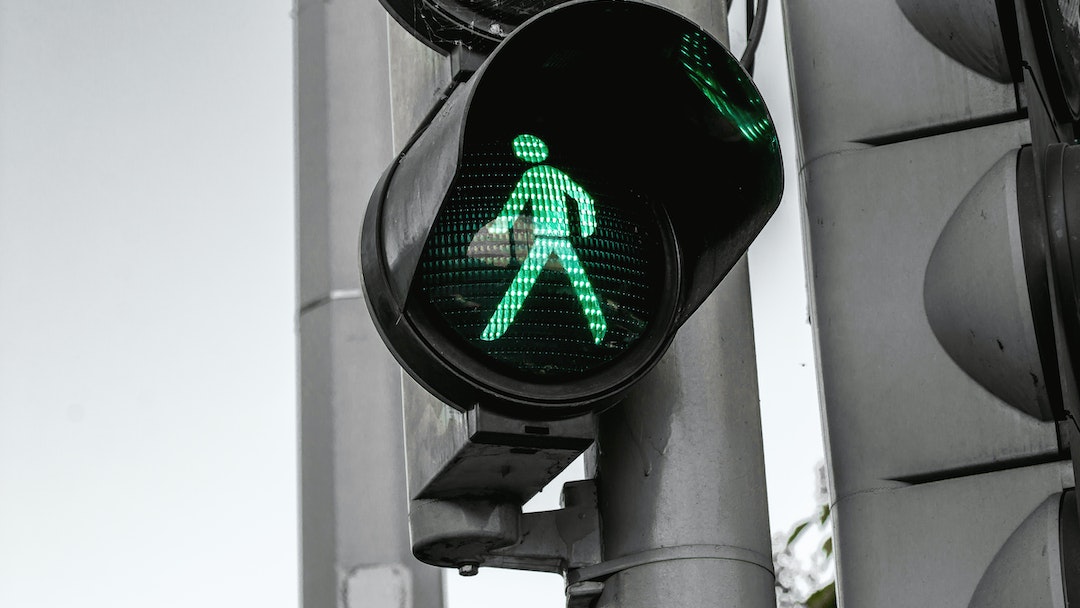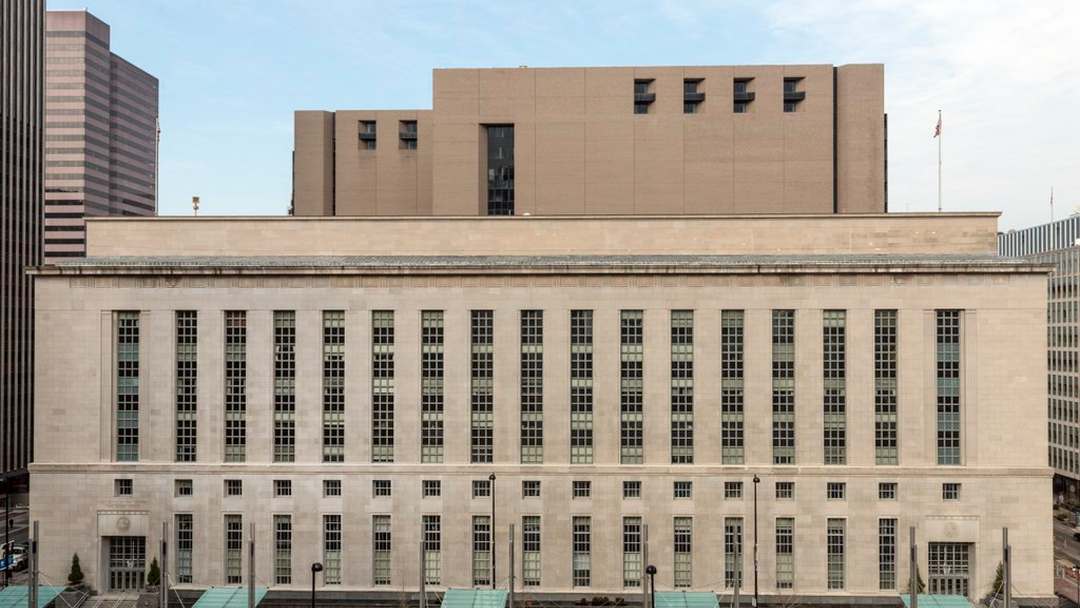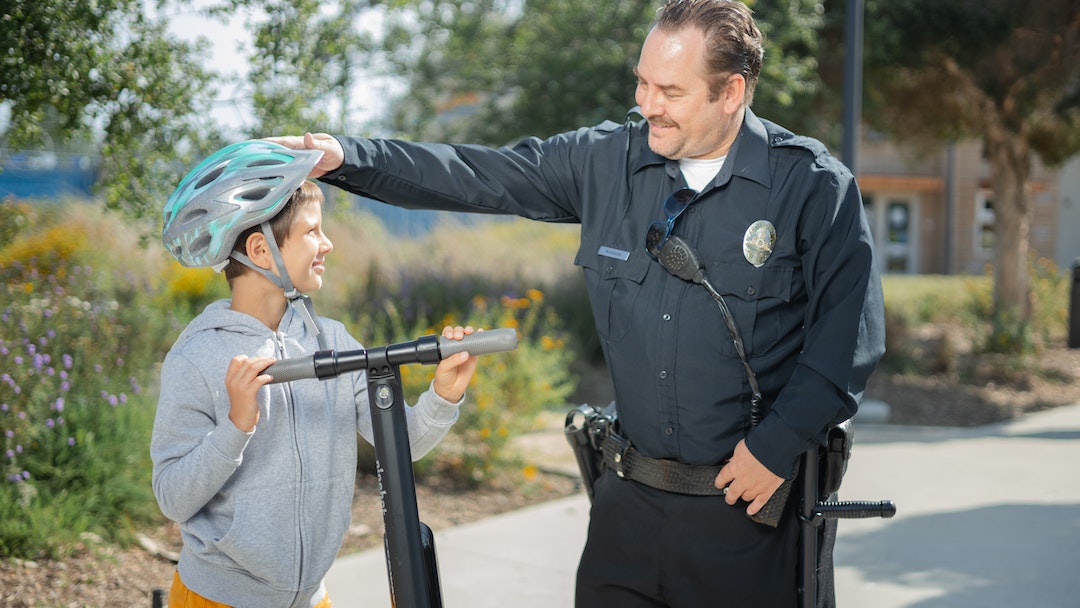Is a recent court of appeals decision a green light for medical marijuana patients, caregivers+ and regular citizens? If the MRTMA laws trump the public health code it could be...at least punishment wise. Read the COA opinion below. Oh yeah, put aside some funds...

Court of Appeals Decision Green Light for MMMA Caregivers?
Is a recent court of appeals decision a green light for medical marijuana patients, caregivers+ and regular citizens? If the MRTMA laws trump the public health code it could be…at least punishment wise.
Read the COA opinion below. Oh yeah, put aside some funds aside for legal defense too… Just in case the system does what it feels like doing.
STATE OF MICHIGAN COURT OF APPEALS
PEOPLE OF THE STATE OF MICHIGAN, Plaintiff-Appellant
v
SHAALN M. KEJBOU
FOR PUBLICATION October 5, 2023 9:00 a.m
No. 361377 Tuscola Circuit Court LC No. 21-015450-FH Defendant-Appellee.
In this interlocutory action, the prosecution appeals by leave granted1 an order quashing a charge of manufacturing 200 or more marijuana plants, MCL 333.7401(2)(d)(i), and a charge of possession of a firearm during the commission of a felony (felony-firearm), MCL 750.227b, which was predicated on the manufacturing-marijuana charge. We affirm.
I. FACTUAL BACKGROUND
The facts of this case are relatively simple. Police in Tuscola County, Michigan, received a tip regarding a large, potentially unlicensed marijuana grow operation. A search warrant was executed on the property.
Investigators confirmed that the property, owned by defendant, housed an extensive, unlicensed marijuana grow operation. It included a number of outbuildings, hydroponic equipment, chemicals, and other materials typically used to cultivate and harvest marijuana plants.
The outdoor areas were protected by a video surveillance system. Police found dogs on the property, presumably also for protection. While searching a house on the property, they discovered a loaded 12-gauge shotgun in one of the bedrooms.
Defendant admits that in sum, investigators found 1,156 individual marijuana plants. He further admits that he did not have a commercial license to grow marijuana.
Following a preliminary examination, defendant was bound over for trial on felony charges of manufacturing 200 or more marijuana plants, conspiracy to do the latter, MCL 750.157a, operating a criminal enterprise (racketeering), MCL 750.159i(1), felony-firearm, and receiving or concealing stolen property worth more than $1,000, MCL 750.535(3)(a), along with a misdemeanor charge of cruelty to animals, MCL 750.50(2).
In the district court, defendant argued that the citizen-enacted Michigan Regulation and Taxation of Marihuana Act (MRTMA), MCL 333.27951 et seq., limited the prosecution of his manufacturing-marijuana charge to misdemeanor status. See MCL 333.27965(4). Defendant renewed the argument in the circuit court. In response, the prosecution argued that the matter instead fell under Article 7 of the Public Health Code, MCL 333.7401 et seq., which provides criminal penalties for the manufacture, delivery, possession, and use of controlled substances, including marijuana.
The circuit court agreed with defendant and granted his motion to quash the manufacturing-marijuana charge, along with the felony-firearm charge that was predicated on it. The prosecution now appeals to this Court.
II. ANALYSIS
At issue here is whether the MRTMA or Article 7 of the Public Health Code should provide the framework for prosecuting a manufacturing-marijuana charge in cases involving unlicensed commercial grow operations.
3 The prosecution argues on appeal that Article 7 controls, and that defendant may thus be subject to a potential felony conviction, rather than a simple misdemeanor under the MRTMA. We disagree.
“A circuit court’s decision to grant or deny a motion to quash charges is reviewed de novo to determine if the district court abused its discretion in binding over a defendant for trial.” People v Jenkins, 244 Mich App 1, 14; 624 NW2d 457 (2000).
“A trial court abuses its discretion when its decision falls outside the range of reasonable and principled outcomes or makes an error of law.”
People v Swain, 288 Mich App 609, 628-629; 794 NW2d 92 (2010) (citations omitted). Statutory interpretation presents a question of law that we review de novo. People v Denio, 454 Mich 691, 698; 564 NW2d 13 (1997).
This action concerns the proper interpretation of the MRTMA and Article 7 of the Public Health Code.
“A fundamental rule of statutory interpretation is to determine the purpose and intent of the Legislature in enacting a provision.” People v Cannon, 206 Mich App 653, 655; 522 NW2d 716 (1994).
Generally, we presume that the Legislature “intended the meaning it plainly expressed.” Id. If no ambiguities are present in the statute’s language, “there is no need for interpretation and the statute must be applied as written.” Id.
Regarding controlled substances, MCL 333.7401, a subsection of Article 7 of the Public Health Code, provides:
- Except as authorized by this article, a person shall not manufacture, create, deliver, or possess with intent to manufacture, create, or deliver a controlled substance, a prescription form, or a counterfeit prescription form. A practitioner licensed by the administrator under this article shall not dispense, prescribe, or administer a controlled substance for other than legitimate and professionally recognized therapeutic or scientific purposes or outside the scope of practice of the practitioner, licensee, or applicant.
- A person who violates this section as to: * * * (d) Marihuana . . . is guilty of a felony punishable as follows: (i) If the amount is . . . 200 plants or more, by imprisonment for not more than 15 years or a fine of not more than $10,000,000.00, or both. Thus, if defendant were to be prosecuted under MCL 333.7401, he would potentially be facing a felony conviction, up to 15 years’ imprisonment, and a fine of up to $10 million.
Conversely, Article 5 of the MRTMA provides that the possession and cultivation of a small number of marijuana plants is not an act for which one may be criminally charged. Specifically, Article 5 states: (1) Notwithstanding any other law or provision of this act, and except as otherwise provided in section 4 of this act,[4] the following acts by a person 21 years.
(b) within the person’s residence, possessing, storing, and processing not more than 10 ounces of marihuana and any marihuana produced by marihuana plants cultivated on the premises and cultivating not more than 12 marihuana plants for personal use, provided that no more than 12 marihuana plants are possessed, cultivated, or processed on the premises at once[.] [MCL 333.27955.]
However, Section 15 the MRTMA, MCL 333.27965, sets forth penalties for possession, cultivation, or delivery of marijuana in ways the act does not authorize, including civil fines and forfeiture of the marijuana. It states that a violator “may be punished only as provided in this section and is not subject to any other form of punishment or disqualification, unless the person consents to another disposition authorized by law.”
The MRTMA thus does not give marijuana the status of such over-the-counter drugs as aspirin or caffeine, but rather places marijuana among other drugs that are generally legal, but whose production, distribution, and consumption remain subject to extensive regulation, e.g., tobacco, alcohol, and pharmaceuticals.
Under Section 15, a person who possesses more than twice the amount of marihuana allowed by section 5 [MCL 333.27955], cultivates more than twice the amount of marihuana allowed by section 5, or delivers without receiving any remuneration to a person who is at least 21 years of age more than twice the amount of marihuana allowed by section 5, shall be responsible for a misdemeanor, but shall not be subject to imprisonment unless the violation was habitual, willful, and for a commercial purpose or the violation involved violence. [MCL 333.27965.]
Thus, if defendant were to be prosecuted under Section 15 of the MRTMA, he would only be subject to misdemeanor penalties, and would further only be subjected to prison time if the violation was “habitual, willful, and for a commercial purpose,” or if the act “involved violence.” MCL 333.27965.
The MRTMA was enacted in late 2018, as the result of an initiative and referendum passed by the voters of the State of Michigan. At that point, marijuana had been decriminalized in Michigan for medical use since 2008.
5 Between 2012 and 2015, 14 local municipalities elected to decriminalize the recreational use of marijuana, including major cities like Detroit, Kalamazoo, and Grand Rapids.
6 Thus, it was only a matter of time before Michigan’s voters decided to decriminalize recreational marijuana use statewide. The ballot initiative passed with approximately 56% of voters in favor and 44% opposed.
7 When it was enacted, the MRTMA included a broad statement of purpose: The purpose of this act is to make marihuana legal under state and local law for adults 21 years of age or older, to make industrial hemp legal under state and local law, and to control the commercial production and distribution of marihuana under a system that licenses, regulates, and taxes the businesses involved.
The intent is to prevent arrest and penalty for personal possession and cultivation of marihuana by adults 21 years of age or older; remove the commercial production and distribution of marihuana from the illicit market; prevent revenue generated from commerce in marihuana from going to criminal enterprises or gangs; prevent the distribution of marihuana to persons under 21 years of age; prevent the diversion of marihuana to illicit markets; ensure the safety of marihuana and marihuana infused products; and ensure security of marihuana establishments. To the fullest extent possible, this act shall be interpreted in accordance with the purpose and intent set forth in this section. [MCL 333.27952.]
Thus, we conclude that the MRTMA was enacted to prevent situations like that which we are presented with here, in which the prosecution seeks a felony conviction for an unlicensed marijuana grow operation.
Even so, whether the MRTMA should control is an issue of first impression for this Court. After due consideration, we hold that it does.
The conduct underlying defendant’s manufacturing-marijuana charge—cultivating more than 1,000 marijuana plants—obviously implicates both the prohibition of cultivating 200 or more such plants for purposes of a felony prosecution under Article 7 of the Public Health Code, see MCL 333.7401(1) and (2)(d)(i), and the prohibition of cultivating more than twice the allowed 12 plants for purposes of a misdemeanor prosecution under the MRTMA, see MCL 333.27955(1)(b) and MCL 333.27965(4).
When we are faced with an apparent conflict between two statutes that share a common purpose, we must attempt to read them in harmony with each other, and in furtherance of their shared purpose.
People v Pfaffle, 246 Mich App 282, 296; 632 NW2d 162 (2001).
In general, [s]tatutes that relate to the same subject matter or share a common purpose are in pari materia and must be read together as one law . . . to effectuate the legislative purpose as found in harmonious statutes.
If two statutes lend themselves to a construction that avoids conflict, that construction should control. When two statutes are in pari materia but conflict with one another on a particular issue, the more specific statute must control over the more general statute. The rules of statutory construction also provide that a more recently enacted law has precedence over the older statute.
This rule is particularly persuasive when one statute is both the more specific and the more recent. [Parise v Detroit Entertainment, LLC, 295 Mich App 25, 27-28; 811 NW2d 98 (2011) (alteration in original; quotation marks, citations, and interpolation brackets omitted).]
By this logic, it would appear that the MRTMA would control outright, as it is the more recent statute. It is also the more specific of the two, in that it deals solely with penalties for possessing marijuana plants.
However, in a related case involving the Michigan Medical Marihuana Act, MCL 333.26421 et seq., our Supreme Court stated that “the MMMA and the Offenses and Penalties provisions of the Controlled Substances Article of the Public Health Code have two diametrically opposed purposes,” given that the purpose of the former “is to allow medical marijuana use for certain individuals under limited circumstances,” while the purpose of the latter “is to criminalize marijuana use and related activities.”
People v Mazur, 497 Mich 302, 313-314; 872 NW2d 201 (2015). The Court explained that “[a]n act that incidentally refers to the same subject is not in pari materia if its scope and aim are distinct and unconnected.” Id. at 313.
Such is unfortunately the case here. The MRTMA broadly decriminalizes the use, possession, and cultivation of marijuana, while the Public Health Code expressly criminalizes the same activities.
The MRTMA joins the MMMA as initiative-based legislation obviously intended to chip away at the scope and severity of the general marijuana prohibitions that the Legislature put in place in the Public Health Code. It is thus not in harmony with the general prohibition of MCL 333.7401, and is instead entirely antagonistic to it.
Accordingly, we need not—and indeed, cannot—harmonize the two provisions.
Since we cannot harmonize the MRTMA with Article 7 of the Public Health Code, Article 7 thus retains its general prohibitive character, and we disagree with the trial court’s overall conclusion that the MRTMA wholly superseded the Public Health Code on the subject of recreational marijuana use.
Nevertheless, based on the language and intent of the MRTMA, we are led to conclude that when it comes to commercial grow operations like the one at issue in this case, Article 7 has been effectively repealed, moderated, or otherwise supplanted by the MRTMA.
Recall that the MRTMA was enacted “to control the commercial production and distribution of marihuana under a system that licenses, regulates, and taxes the businesses involved,” and “to prevent arrest and penalty for personal possession and cultivation of marihuana by adults 21 years of age or older[.]” MCL 333.27952.
The amount of marijuana defendant was growing certainly was not for “personal possession and cultivation” under MCL 33.27952, but would instead fall under the MRTMA’s stated prerogative to license and regulate the business of commercial marijuana production.
When the police executed a search warrant on defendant’s property, they discovered that he was in possession of more than 1,000 marijuana plants split between outbuildings and outdoor garden areas.
The property was equipped with hydroponic systems, chemicals, surveillance cameras, and more.
This was clearly a large-scale, unlicensed commercial grow operation, the likes of which the MRTMA was specifically designed to “license[], regulate[], and tax[.]” MCL 333.27952.
We recognize that “[r]epeals by implication are not favored and will not be indulged in if there is any other reasonable construction.” Wayne Co Prosecutor v Dep’t of Corrections, 451 Mich 569, 576; 548 NW2d 900 (1996).
However, based on the language of the MRTMA and the statute’s intended purpose, we can fathom no other reasonable construction of the MRTMA here.
The question, then, is the degree to which the MRTMA does indeed carve out exceptions to MCL 333.7401.
In this case, defendant was charged with manufacturing marijuana under MCL 333.7401(2)(d)(i), and argued in the district court that the enactment of the MRTMA downgraded the alleged activity underlying that charge to misdemeanor status under MCL 333.27965(4).
The district court rejected that argument, opining that the latter misdemeanor provision does not cover “possession with intent to deliver” large quantities of marijuana and stating that “[t]he Court does not believe . . . the [L]egislature intended the only consequence for someone who engaged in activity like [defendant] could only be charged with a misdemeanor offense.”
The district court thus concluded that the “MRTMA does not prohibit the prosecution from charging [defendant] in this case with felony offenses based on a number of plants that he had and the nature of the business that he was running.”
The circuit court saw the case differently, explaining as follows: It has long been a rule of construction that a more specific portion of a statute is controlling over a more general portion of the statue.
In addition, our previous Michigan Supreme Court majority lectured trial judges repeatedly that the courts were to follow the statutes exactly as they are written and not assume what the legislature may have meant by their enactment or interpret them in some way that the court may think appropriate.
Based upon those two rules of statutory construction as well as a plane [sic] reading of the statute in question, it does appear to this court that [the] sole and exclusive remedy for the conduct of the defendant complained of in this information is the MRTMA being [MCL] 333.27965(4) . . . .
Therefore, it is the order of this Court that the bind over on the counts of delivery, manufacture of controlled substance of 200 or more plants pursuant to MCL section 333.7401 is quashed, as is the felony firearm bind over pursuant to MCL section 750.227(b).
We ultimately agree with the circuit court.
This case involves a commercial grow operation. The MRTMA leaves no void, in connection with commercial marijuana cultivation, for criminal statutes that were in place before the enactment of the MRTMA to fill.
Further, if the statutes generally prohibiting marijuana consumption, possession, or cultivation in Article 7 the Public Health Code, and permitting such activities in the MRTMA, do not have a common purpose, there can be no doubt that the various provisions within the MRTMA are in pari materia, and should thus be read to harmonize with each other.
This means reading the penalties set forth in MCL 333.27965(4) in conjunction with, and as informed by, the statement of purpose in MCL 333.27952.
On top of including a statement of purpose that expressly indicates that the MRTMA was designed to govern and regulate commercial marijuana production, the statute does not state that persons whose activities exceed the scope of protected conduct are left at the mercy of the Public Health Code or other criminal statutes.
If anything, the statute states the opposite as regards the -8- instant situation, providing that a person possessing or cultivating marijuana in quantities exceeding those specified, who “is not otherwise authorized by this act to conduct such activities, may be punished only as provided in this section and is not subject to any other form of punishment.” MCL 333.27965 (emphasis added).
The MRTMA thus acknowledges that its provisions do create conflicts with other criminal statutes, and emphatically decrees that, when they do, the MRTMA prevails.
The prosecution’s theory, in effect, is that that the misdemeanor provisions of MCL 333.27965 give way to the felony provisions of MCL 333.7401 when the amounts of marijuana possessed or cultivated suggests that a defendant is involved in commercial trafficking, as opposed to mere personal use.
However, MCL 333.27965(4) does not differentiate between commercial and personal use for purposes of identifying the proper penalty, and again, nothing in the MRTMA at large suggests that the statute gives way to the Public Health Code if a defendant is found in possession of an unlawful amount of marijuana.
Further, that MCL 333.27965(4) wholly precludes imprisonment even as part of a misdemeanor sentence, unless the violation was “habitual, willful, and for a commercial purpose or . . . involved violence[,]” thus effectively authorizing misdemeanor-level incarceration8 if such a specified combination of aggravating factors is present, indicates that the MRTMA’s provisions for penalties are intended to cover unauthorized commercial, and therefore nonpersonal, cultivation of marijuana.
Under the circumstances presented here, we conclude that the circuit court reached the correct result by finding that the MRTMA governed defendant’s behavior and punishment, rather than Article 7 of the Public Health Code.
III. CONCLUSION
For the foregoing reasons, we conclude that the circuit court correctly held that defendant’s manufacturing-marijuana charge is now covered by the MRTMA, and thus defendant was not subject to prosecution under MCL 333.7401(1) and (2)(d)(i). Consequently, the circuit court properly quashed the manufacturing-marijuana bindover, along with the attendant felony-firearm bindover.9
Affirmed. /s/ Michelle M. Rick /s/ Kirsten Frank Kelly
Footnotes
1 People v Kejbou, unpublished order of the Court of Appeals, issued September 21, 2022 (Docket No. 361377).
2 The MRTMA “generally decriminalizes the possession and use of marijuana for persons 21 years of age or older and provides for the legal production and sale of marijuana.” Brightmoore Gardens, LLC v Marijuana Regulatory Agency, 337 Mich App 149, 153; 975 NW2d 52 (2021). This Court has repeatedly observed that the spelling “marihuana” prevails in the legislative context, but that “marijuana” otherwise prevails in judicial opinions. See, e.g., Yellow Tail Ventures, Inc v Berkley, ___ Mich App ___, ___; ___ NW2d ___ (2022) (Docket Nos. 357654, 357666, & 358242); slip op at 3. 3 We note that this case primarily involves a question of whether the MRTMA should control the prosecution of a defendant who stands accused of maintaining an unlicensed commercial grow operation. We take no position on whether the MRTMA controls where a defendant is charged for possessing an amount of marijuana or marijuana plants in excess of the amounts considered legal for personal, recreational use under the MRTMA.
4 Section 4, MCL 333.27954, clarifies that the MRTMA does not authorize operation of motor vehicles under the influence of marijuana, possession by or providing marijuana to persons under 21, unsecured storage of large amounts of marijuana, or possession or consumption of marijuana on the grounds of grade schools or correctional facilities. It further states that the MRTMA does not require employers or property owners to permit or accommodate marijuana consumption, except that a lease agreement may prevent marijuana possession or consumption only by means of smoking. Otherwise, “[a]ll other laws inconsistent with this act do not apply to conduct that is permitted by this act.” MCL 333.27954(5). There is no suggestion in this case that defendant exceeded the scope of the MRTMA as set forth in Section 4.
5 MLive, Michigan Voters Approve Medical Marijuana Measure (accessed July 21, 2023).
6 Marijuana Policy Project, Decriminalization is Sweeping Michigan—One City At a Time < https://www.mpp.org/states/michigan/decriminalization-is-sweeping-michigan-one-city-at-atime/> (accessed July 21, 2023). It should also be noted that marijuana has been legal for recreational use in Ann Arbor since 1972. Id. 7 Department of State, 2018 Election Results (accessed July 21, 2023).
8 That MCL 333.27965(4) explicitly authorizes “imprisonment,” as opposed to, perhaps, mere “jail incarceration,” when a violation was “habitual, willful, and for a commercial purpose or . . . involved violence” does not imply that its misdemeanor specification thus gives way to felony provisions of other statutes. Although the term “imprisonment” and its variants is often reserved for relatively lengthy, or felony-level, terms of incarceration in the Department of Corrections, while such softer terms as “in jail,” or “jail incarceration” are often used for relatively short, or misdemeanor-level, sentences served in the county jail, the penalty of imprisonment, so characterized, is not legally limited to felony convictions. The Michigan Penal Code, MCL 750.1 et seq., states that, when “a person is convicted of a crime designated in this act or in any other act of this state to be a misdemeanor for which no punishment is specially prescribed, the person is guilty of a misdemeanor punishable by imprisonment for not more than 90 days or a fine of not more than $500.00, or both.” MCL 750.504. The Penal Code thus both generally authorizes incarceration for certain misdemeanors, and does so by referring to even such relatively short such periods of incarceration as “imprisonment,” respecting no convention of reserving the latter term for longer periods resulting from felony convictions. See also MCL 333.7406 (a provision of the Public Health Code setting forth a “misdemeanor, punishable by imprisonment for not more than 2 years”) (emphasis added).
9 We recognize that the Legislature may not have intended the outcome that we reach in this case. Based on the plain and unambiguous language of the MRTMA and controlling caselaw regarding statutory interpretation, we are obliged to find in favor of defendant. We acknowledge this outcome may be viewed unjust by those businesses that legitimately operate within the parameters of the MRTMA. The remedy, however, lies within the sole responsibility of the Legislature.
More Posts

Court of Appeals Decision Green Light for MMMA Caregivers?

Michigan Court of Appeals Opinion – Ineffective Counsel
Concerns: Ineffective assistance of counsel Failure to move to dismiss a reckless-driving causing death charge The Motor Vehicle Act (MVA) MCL 257.626(4) Whether careless maintenance can satisfy the elements of reckless operation & operation causing death Willful...







MI Democrats: Give driver licenses to undocumented immigrants
“There’s not an apple, blueberry, asparagus, turkey, egg (farm) that this legislation wouldn’t help,” said Rob Steffens







Michigan K-12 students could take medical marijuana to school
Students attending K-12 schools in Michigan would have the opportunity to utilize medical marijuana and CBD-infused products thanks to recently introduced legislation (2023-HIB-5063). The bill, introduced by Democratic representatives in the Michigan House last week,...







SAFER banking act – Acting up again
October 2, 2023 - The Senate Banking Committee's historic vote propels the SAFER Banking Act to the Senate floor, marking a significant milestone. The bill must now navigate the Senate and the House of Representatives before reaching President Biden's desk. Cannabis...







Canadian Study-Cannabis use disorder linked to 60% higher risk
A recent study published in Addiction evaluated the associations of cannabis use disorder (CUD) with cardiovascular disease (CVD) outcomes. Cannabis usage is prevalent among more than 200 million individuals worldwide, and its associated adverse effects carry...







US Court of Appeals 6th – Opinion – Search & Seizure
Kentucky State Police officers searched Edward Lewis’s laptop, cell phone, and thumb drive and found evidence of child pornography. Lewis moved to suppress the evidence, arguing that it was obtained through an unlawful search and seizure of his electronic devices...













Michigan Court of Appeals Opinion – Crime Definition
Published Michigan Court of Appeals Opinion Docket No(s) 362161Lower Court Docket No(s) 2021-000966-FCHood, J. “Crimes are supposed to be defined by the legislature, not by clever prosecutors riffing on equivocal language.” [*1] “[C]rimes are supposed to be defined by...







Michigan Supreme Court won’t revive Flint water charges
The Michigan Supreme Court Wednesday shot down the state attorney general’s high-profile effort to criminally prosecute seven former public officials for their role in the Flint water crisis. In a series of orders, the court left in place lower court dismissals of the...







Probation and Sentencing Law Changes in Michigan
Recently, Michigan implemented significant reforms in their criminal justice system, impacting both misdemeanor and felony sentencing as well as probation.
